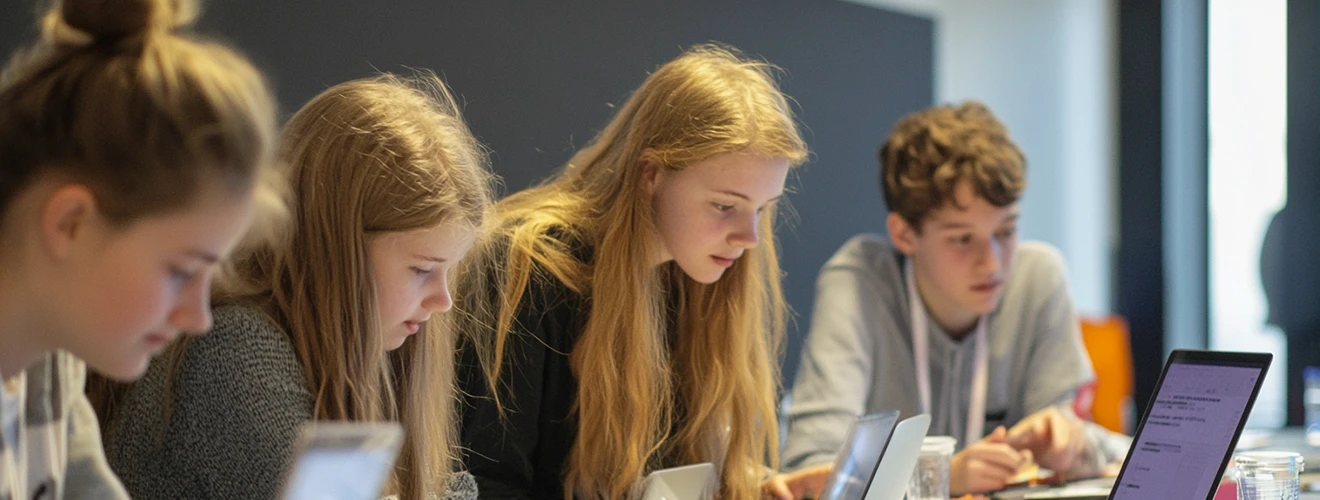
Proof-based Discrete Mathematics
Course Description
This course will introduce you to higher-level mathematical argumentation and proof, an understanding of which is crucial to making the transition from high school to undergraduate math coursework.
What we take as given early on in the study of mathematics actually has reasoning behind it, and this course will show you how to begin to uncover and articulate that reasoning for yourself.
To do so, we will focus on the seemingly simple question, “How do we count?” Answering this question will require thinking in terms of sets rather than numbers, so we will begin with naïve (as opposed to axiomatic) set theory and basic set operations, then see how these operations correspond to counting problems including infinite sets. We will also consider topics such as paradoxes of infinity, countability and uncountability, and advanced theories about counting.
On a daily basis, you will attend lectures, work in small groups, and present your mathematical arguments and findings in a mutually supportive, inclusive, and welcoming space.
Course Criteria
Prerequisites: Algebra 1, Algebra 2 and Geometry.
Academic Interest
Computer Science, Data Science, Math, and Statistics, Physical Sciences (e.g., astronomy, physics)
Application Materials
A complete application includes a transcript, two short essays, a letter of recommendation, writing sample, application fee, and a submitted parent confirmation. If you are seeking need-based financial aid, you must indicate that in your application before it is submitted. Please refer to the Application Instructions for complete details.
Instructor(s)
Matthew Gelvin
Cost
$9,300
Other Courses to Consider
These courses might also be of interest.
 Pathways in Data Science
Pathways in Data ScienceIn a world increasingly driven by information, data science has emerged as an all-encompassing term to describe the process of collecting, processing, analyzing, and drawing conclusions from data. The ability to use data science tools and understand their foundations is crucial for those who wish to engage with the greatest challenges in modern society.
This course introduces students to the full data science pipeline—question formulation, data collection, storage, computation, visualization, inference, prediction, and communication. In addition to lectures, labs, discussions, and visits by guest speakers, students will learn Python and Jupyter Notebooks and complete a capstone project using real-world data.
Residential Career Insight: Technology and Innovation
Career Insight: Technology and InnovationMove future-forward in pursuits like AI, human-computer interface, nanotechnology, and climate engineering!
Explore possible paths to follow during and after college, as you look deeper into how you might pursue your passions. Your journey begins here at UChicago, home of cutting-edge innovation hubs in all of these areas and more.
In the morning, UChicago professors, lecturers, and researchers will introduce you to key concepts and practices in molecular engineering, computer science, and the physical sciences through lectures, discussions, readings, and hands-on activities designed to reveal a range of possible pursuits.
In the afternoon, connect with practitioners through presentations, informational interviews, and career treks around the city, and with Career Advancement staff who will help you consider what various career paths you might follow and cultivate the skills you need to begin to pursue those opportunities.
You will put your skills and knowledge into practice in a small-group final project as well as individual reflection essays and other assignments.
Residential